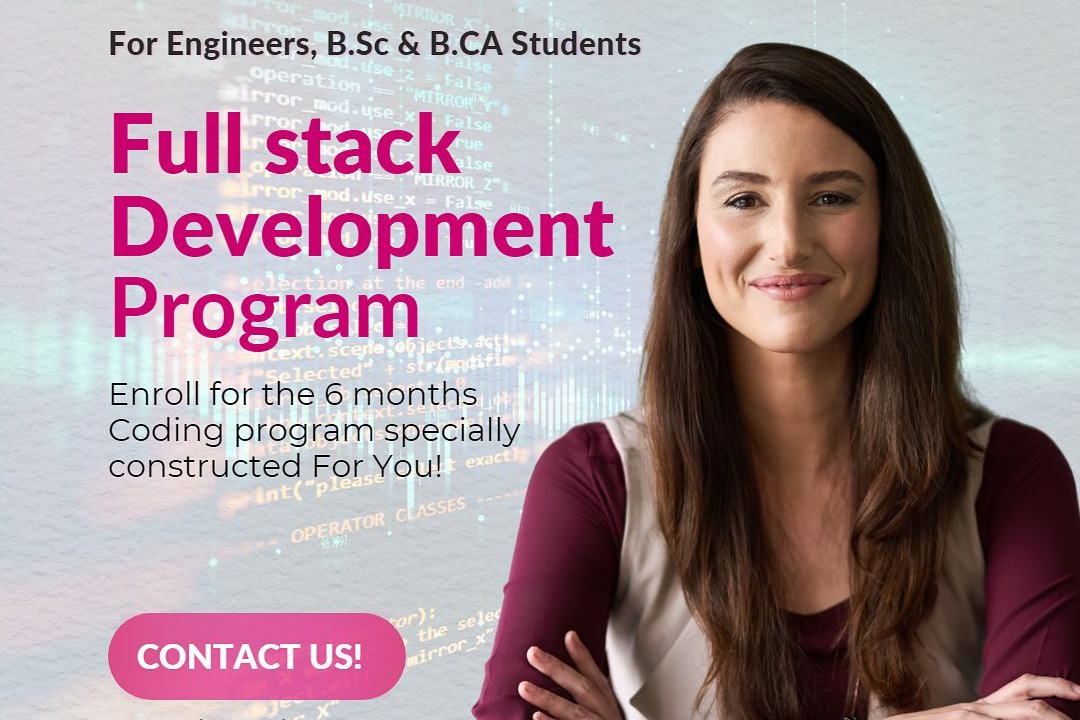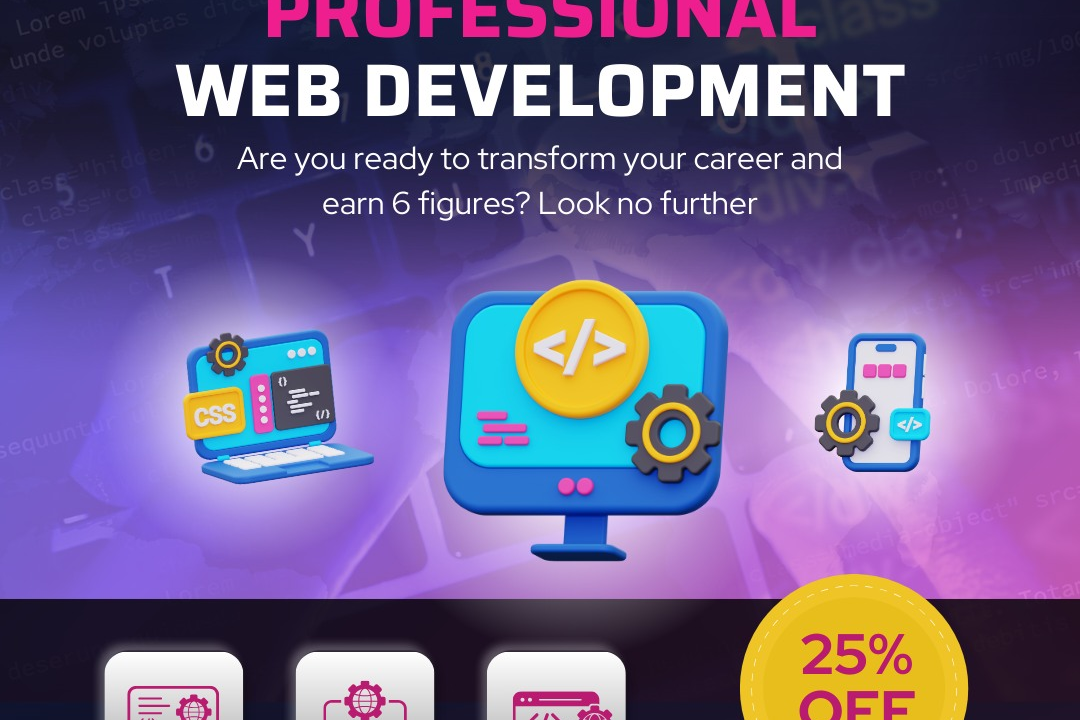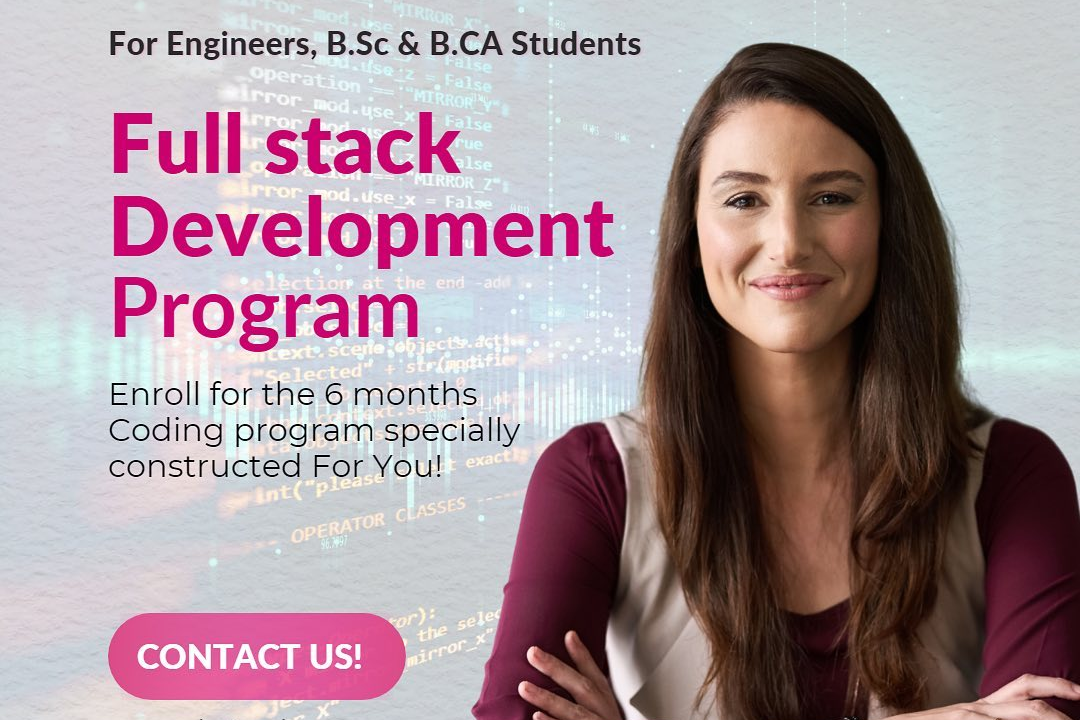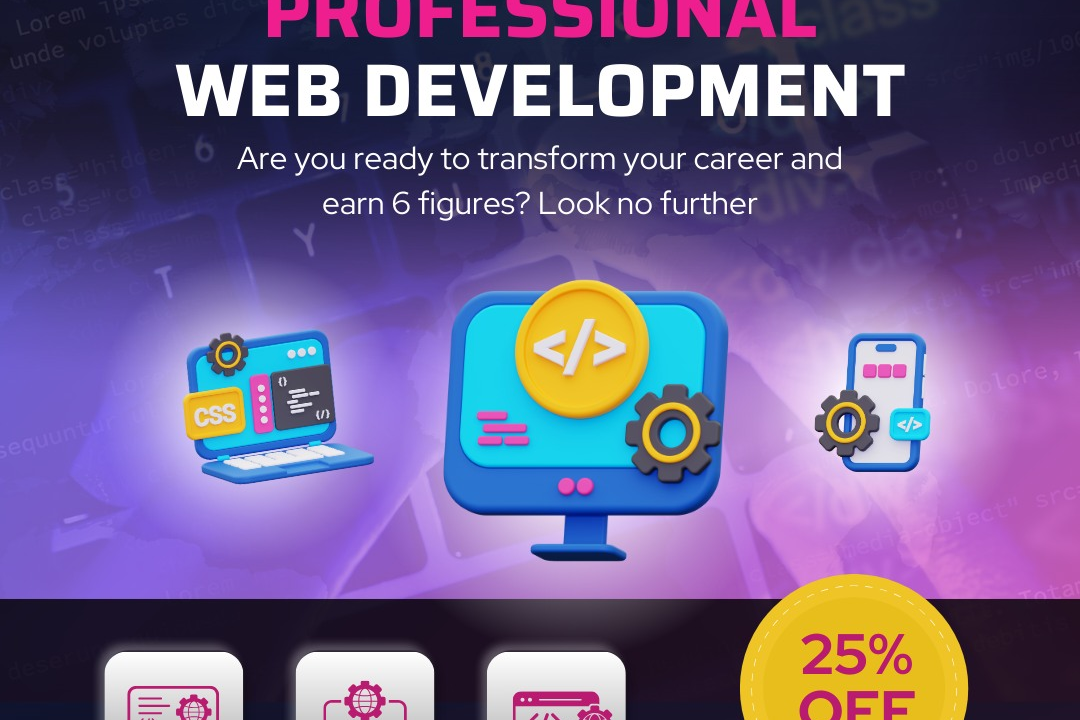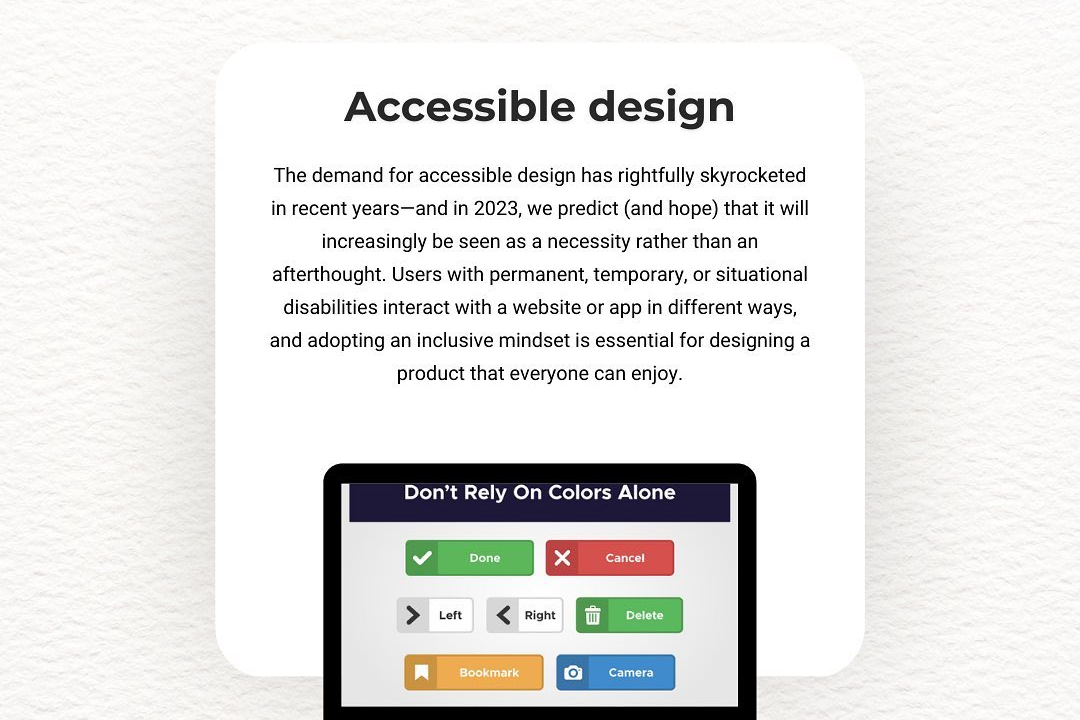Create Simple Php Program
Creating a simple PHP program involves writing a script that executes basic functions on a web serve
Create Simple Php Program
Creating a simple PHP program is essential for web development as it allows developers to build dynamic and interactive websites efficiently. PHP is a server-side scripting language that enables the integration of various functionalities, such as user authentication, data processing, and content management. By learning to create simple PHP programs, developers can enhance their understanding of web technologies and create applications that respond to user input in real time. This foundational skill is invaluable in the digital landscape, where the ability to interact with databases and serve dynamic content is crucial for modern web applications.
To Download Our Brochure: https://www.justacademy.co/download-brochure-for-free
Message us for more information: +91 9987184296
Creating a simple PHP program is essential for web development as it allows developers to build dynamic and interactive websites efficiently. PHP is a server side scripting language that enables the integration of various functionalities, such as user authentication, data processing, and content management. By learning to create simple PHP programs, developers can enhance their understanding of web technologies and create applications that respond to user input in real time. This foundational skill is invaluable in the digital landscape, where the ability to interact with databases and serve dynamic content is crucial for modern web applications.
Course Overview
The “Create Simple PHP Program” course is designed for beginners who want to gain fundamental skills in PHP programming language. This course covers the essential concepts of PHP, including data types, variables, control structures, functions, and integrating PHP with HTML. Participants will engage in hands-on projects that allow them to apply their knowledge by building simple web applications that handle user inputs and display dynamic content. By the end of the course, learners will have the confidence and capability to develop their own PHP applications, paving the way for more advanced programming challenges and opportunities in web development.
Course Description
The “Create Simple PHP Program” course is a beginner-friendly introduction to PHP programming that equips students with essential skills to develop dynamic web applications. Covering key concepts such as variables, data types, control structures, and functions, this course promotes hands-on learning through real-time projects. Participants will create practical applications that process user inputs and display dynamic content, solidifying their understanding of PHP in a real-world context. By completing this course, learners will be prepared to tackle more advanced programming challenges and enhance their web development capabilities.
Key Features
1 - Comprehensive Tool Coverage: Provides hands-on training with a range of industry-standard testing tools, including Selenium, JIRA, LoadRunner, and TestRail.
2) Practical Exercises: Features real-world exercises and case studies to apply tools in various testing scenarios.
3) Interactive Learning: Includes interactive sessions with industry experts for personalized feedback and guidance.
4) Detailed Tutorials: Offers extensive tutorials and documentation on tool functionalities and best practices.
5) Advanced Techniques: Covers both fundamental and advanced techniques for using testing tools effectively.
6) Data Visualization: Integrates tools for visualizing test metrics and results, enhancing data interpretation and decision-making.
7) Tool Integration: Teaches how to integrate testing tools into the software development lifecycle for streamlined workflows.
8) Project-Based Learning: Focuses on project-based learning to build practical skills and create a portfolio of completed tasks.
9) Career Support: Provides resources and support for applying learned skills to real-world job scenarios, including resume building and interview preparation.
10) Up-to-Date Content: Ensures that course materials reflect the latest industry standards and tool updates.
Benefits of taking our course
Functional Tools
1 - XAMPP/LAMP/WAMP: These are popular software packages that provide a local server environment for PHP development. XAMPP (cross platform), LAMP (Linux), and WAMP (Windows) come pre packaged with Apache, MySQL, and PHP, allowing students to set up a web server easily on their local machines. Students learn to configure their server environment, upload files, and test scripts in a secure setting, simulating live server conditions. This foundational tool enables beginners to experiment with PHP without the need for internet access.
2) Code Editor: Using a robust code editor, such as Visual Studio Code, Sublime Text, or PHPStorm, is essential for writing PHP code efficiently. These editors offer features like syntax highlighting, code completion, and error detection, which enhance the coding experience. By utilizing a code editor, students develop better code organization habits and become familiar with tools that improve productivity. They also learn keyboard shortcuts and customization options that streamline their workflow and facilitate debugging.
3) Browser Developer Tools: Modern web browsers include built in development tools that allow users to inspect HTML, CSS, and JavaScript. Students use these tools to debug and troubleshoot their PHP applications in real time by looking at how their code interacts with the browser. The ability to monitor network activity and performance metrics helps learners understand how their PHP scripts affect webpage load times and user experience. This knowledge is vital for developing efficient and responsive web applications.
4) Git and GitHub: Version control with Git is a critical skill in software development. Students learn to use Git commands for tracking changes, managing versions of their code, and collaborating with others. They explore how to create repositories on GitHub, facilitating team projects and sharing code with potential employers. This foundational understanding of version control prepares students for industry practices, giving them an edge in the competitive job market while fostering collaboration and project management skills.
5) PHP Documentation: The official PHP documentation serves as an essential resource for students during their learning journey. It provides comprehensive information about functions, syntax, and features of the language. Familiarity with the documentation enables learners to independently troubleshoot issues and explore advanced PHP functionalities. By referencing the documentation, students develop research skills that empower them to continue learning long after the course concludes, fostering a mindset of continuous improvement.
6) Frameworks and Libraries (Optional): While the primary focus is on core PHP programming, an introduction to popular frameworks like Laravel or CodeIgniter may be included. These frameworks streamline development by offering pre built modules and libraries that handle common tasks such as routing and database interactions. Students learn how to incorporate these frameworks into their projects, enhancing productivity and enabling the creation of more robust applications. Exposure to frameworks prepares them for advanced topics and real world applications, making their skill set more versatile.
7) Database Management Tools: Understanding how to interact with databases is crucial for PHP development. Students gain hands on experience with database management systems like MySQL or PostgreSQL. Tools like phpMyAdmin provide a user friendly interface to create, manage, and query databases. By learning to perform CRUD (Create, Read, Update, Delete) operations, students enhance their ability to store and retrieve data effectively, laying the groundwork for dynamic web applications that require back end data handling.
8) Postman or cURL: For students learning API integration in PHP, tools like Postman or cURL are invaluable. They enable users to send HTTP requests and interact with APIs, facilitating the learning process of working with third party services and building RESTful APIs. Understanding how to use these tools helps students test their PHP applications, troubleshoot issues, and ensure that their applications communicate effectively with external data sources. Familiarity with API interactions is an increasingly in demand skill in the tech industry.
9) Debugging Tools: Learning to debug PHP code efficiently is a crucial competency for any developer. Tools like Xdebug allow students to perform step by step debugging, enabling them to set breakpoints and inspect variables in real time. By mastering debugging techniques, students enhance their problem solving abilities and reduce the time spent on troubleshooting code errors. This skill is not only essential for personal development but also highly valued by employers who seek developers capable of delivering quality code.
10) MVC (Model View Controller) Architecture: Understanding the MVC architecture is vital for PHP developers, particularly when working with frameworks. Students learn how to separate application logic, user interface, and data management into distinct components. This knowledge helps them build maintainable and scalable applications, follow best practices in software design, and collaborate effectively within teams. Familiarity with MVC also prepares students for real world projects where this architectural pattern is commonly applied.
11 - Unit Testing: Introducing students to unit testing with tools like PHPUnit can dramatically improve the quality of their code. Learning to write test cases for their PHP applications encourages good coding practices and helps identify bugs early in the development process. By incorporating testing into their workflow, students become adept at ensuring functionality and reliability, which is critical for enterprise applications. This skill not only enhances their coding capabilities but also prepares them for environments that prioritize quality assurance in software development.
12) Content Management Systems (CMS): Familiarizing students with popular CMS platforms like WordPress or Joomla provides valuable insights into how PHP powers many web applications. Students explore how to customize themes and plugins, and understand the architecture behind these systems. By learning to build and modify CMS driven websites, students gain practical experience that is highly applicable in the job market, as many businesses rely on these platforms for their online presence.
13) Soft Skills Development: Beyond technical skills, students should also enhance their soft skills during their PHP development journey. Emphasizing communication, teamwork, and time management prepares students for collaborative environments in the workplace. Regular group projects and peer reviews reinforce these essential skills, making students well rounded candidates ready to tackle challenges in real world scenarios and work effectively in diverse teams.
14) Portfolio Development: As students progress through their PHP learning journey, they should work on developing a portfolio of projects that showcase their skills. By creating a variety of applications, from simple scripts to complex web applications, learners can demonstrate their competence to potential employers. An impressive portfolio highlights not only technical abilities but also creativity and problem solving skills, giving students a competitive edge when applying for jobs in the tech industry.
15) Networking and Community Involvement: Encouraging students to participate in coding communities, forums, or local meetups can significantly enhance their learning experience. Engaging with other learners and experienced developers fosters knowledge sharing, collaboration, and support. Networking can lead to mentorship opportunities, job prospects, and insights into industry trends, empowering students to stay informed and connected as they transition from learning to professional environments.
Browse our course links : https://www.justacademy.co/all-courses
To Join our FREE DEMO Session:
This information is sourced from JustAcademy
Contact Info:
Roshan Chaturvedi
Message us on Whatsapp:
Email id: info@justacademy.co
Manual Testing Classes Near Me

